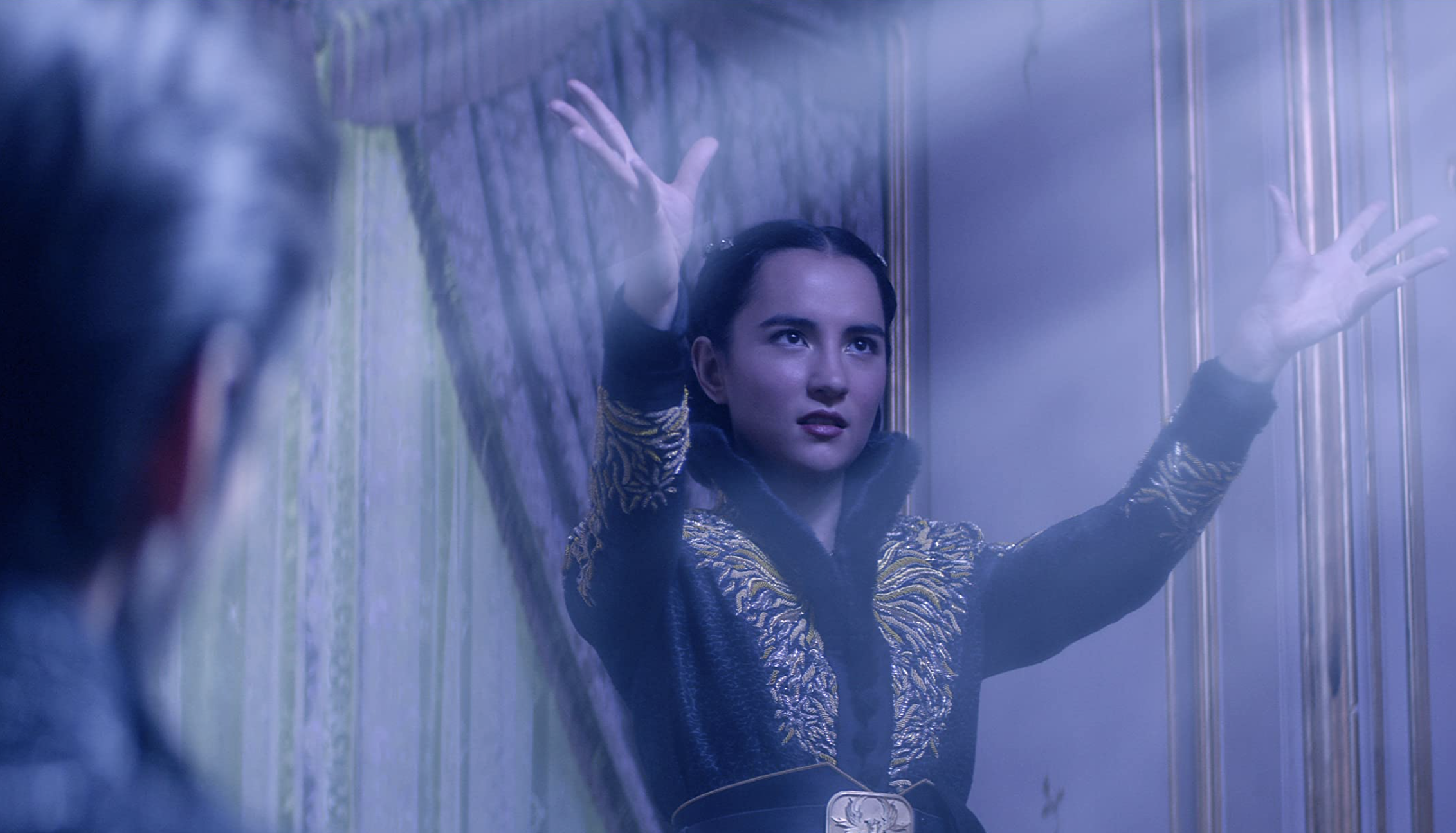A privateer, a Sun Summoner, and a gang leader walk onto a battlefield—it almost sounds like the beginning of a “walks into a bar” joke.
Shadow and Bone returned to Netflix for a second season of thievery, trickery, and fantastical adventure on March 16, 2023. The series adapts multiple of Leigh Bardugo’s novels—the Shadow and Bone trilogy of the same name, as well as the Six of Crows and King of Scars duologies—into one cohesive story. After the extraordinary debut of season one, garnering the approval and cult-like Twitter following of old readers and new viewers alike, season two had big shoes to fill.
It’s safe to say that this season didn’t disappoint. This season didn’t come to play, upping the heart-pounding tension, elevating the visual and special effects, and bringing the new crossovers. We learn that the Darkling (Ben Barnes), in fact, is very much alive and ready to kidnap Alina (Jessie Mei Li) back to his side and wage war against Ravka. In response, Alina embarks on a daunting mission to tear down the Fold with Mal (Archie Renaux) at her side, but not before stumbling onto the ship of Sturmhond, a powerful and charming privateer who is revealed to actually be Nikolai Lantsov (Patrick Gibson), the second son of the king of Ravka. And in the eye of the hurricane that is the Barrel, as the Crows, led by Kaz Brekker (Freddy Carter), are desperately trying to regain power and leverage, they’re enlisted to do what they do best: steal.
The phenomenal work of the show’s casting director deserves a round of applause of its own. Carter fully embodies the “bastard of the Barrel,” becoming the anti-hero the small screen desperately needed; it feels like Jack Wolfe was born to play Wylan Hendriks; and there’s no one better to portray the balance of reserved emotion and deadly courage that is Inej Ghafa than Amita Suman.
Some longtime fans of Bardugo’s work have expressed feelings of dissatisfaction and annoyance at creator Eric Heisserer’s decision to converge different book series into one show, meaning that characters who were never meant to meet each other were interacting on the screen. Many felt that the combinations were reductive, causing conflicts and their resolutions to be dramatically sped up and consequently losing the thrill of built-up suspense and slow burn. For many, each series of novels deserved its own show or spinoff. And while such concerns are understandable and valid, it’s also greatly worthwhile for fans to consider that the intermixing and rewriting of stories can be incredibly exciting. After all, where’s the fun in watching a play-by-play of a script where you already know exactly how everything will play out?
Film and TV adaptations can exist as standalone works from their written counterparts, and with the screen adaptation of Shadow and Bone, we’re given the opportunity to have two different and equally exhilarating experiences with the same characters that we know and love.
Instead of being a drawback, the complexity and jumps in time and place of the show’s script are a testament to the skill and care of its writers. To construct one fantasy world and to do it well is already difficult—to create multiple while curating a viewing experience that doesn’t feel overwhelming or leave the audience lost in the fictional universes is even more precarious. Shadow and Bone’s ability to do such a tremendous amount of exposition and hold that many parallel storylines simultaneously is especially impressive.
It’s easy to evaluate Shadow and Bone’s execution on the rubric of a TV critic, but other elements of the show merit praise for the entire fantasy genre. The nuances of characterization and the themes that are interwoven into the plot exemplify something delicately meaningful about the genre of fantasy, writ large. Often, fantasy as a genre of film and media is easily written off as childish, geared towards young audiences who have yet the maturity to consume “real,” “relevant,” or “important” works. Yet every year, the genre consistently remains one of the best-selling categories of literature. The reason audiences continue to pick up fantasy novels from the shelf and become so emotionally invested in their screen adaptations isn’t that those audiences are composed of little kids—contrary to popular belief, the average age of a fantasy reader is 42 years. Rather, works of fantasy resonate because, though they might exist in universes in our imagination, they manage to communicate messages that feel innately and relatably human. The best works and storylines are those that, despite their unfamiliar, abstract, and foreign unworldliness, hit home for the audience by drawing parallels to intimately human struggles and touching on emotions we know all too well.
This sentiment rings true for all works of fantasy that perform well, and Shadow and Bone has a couple of especially outstanding instances. While the show’s background context is that of war and constant conflict between mystical peoples, the underlying question of what causes separation and divide between groups of people is one that doesn’t only find relevance in the Grishaverse. So many lines of dialogue— “Blood is blood, only fools think otherwise,” for instance—are just as equally applicable to conversations about what it means to be human in our own world. And to see Alina, who in the previous season and earlier novels faces neverending doubt and exclusion in her homeland because she is part Shu, be crowned the queen of Ravka in her final hurrah, invokes a deeper sense of satisfaction and hope.
Each character has their own story of love and loss—what does it mean to lose the place and people you call home? From Kaz, what sort of pain and emotional burden do you have to carry to protect the people you love? Carter’s exceptional portrayal of Brekker’s PTSD deserves a standing ovation—so rarely are films and shows able to produce scenes of flashback and sudden memory that can accurately and visually represent what that sort of trauma and hurt genuinely feels like. And for Alina, what does it feel like to rejoice in a reunion with someone you had thought was lost from your life, or know that you’ve found your people in this vast and scary world? These stories aren’t just fictional anecdotes, they’re universal experiences.
Fantasy is commonly perceived as an escape from reality—for just a while, we get to immerse ourselves in a world where everything we know about culture and society could be turned upside down. But we wouldn’t really want to escape if where we run away to doesn’t provide us with some sort of real comfort and familiarity. It’s because somewhere, in the midst of all the warring kingdoms, witches and saints, and fairytale magic, we see ourselves reflected in characters that don’t exist and the battles they fight; their stories ring true to heart.







